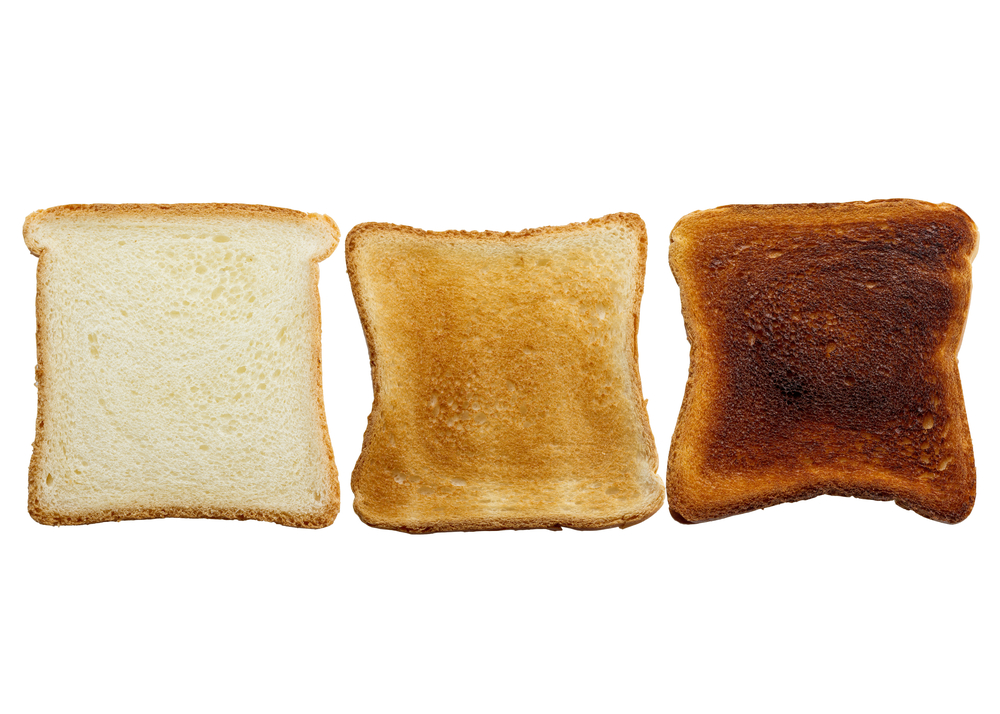Is Burnt Toast Bad for You? The Science of Cancer and Acrylamide

A new warning about the health risks of eating browned potatoes and burnt toast draws a link between a chemical called acrylamide and an increased risk of cancer.
The warning comes from the United Kingdom's Food Standards Agency, which launched a campaign on Jan. 23 called "Go for Gold" that's aimed at reducing the amount of acrylamide that people eat. The name refers to the golden color people should aim for when cooking starchy foods, instead of cooking further, to the point of reaching a darker brown color.
But what is acrylamide, and how much of a health risk does it pose? [10 Do's and Don'ts to Reduce Your Risk of Cancer]
Acrylamide is a chemical that can be formed in starchy foods when they're cooked at very high temperatures — for example, when frying potatoes or making toast, said Marji McCullough, strategic director of nutritional epidemiology at the American Cancer Society (ACS). Neither McCullough and nor the ACS were involved with the U.K. campaign.
Studies have shown that in animals, acrylamide can damage DNA and cause cancer, McCullough told Live Science. Because of this evidence in animals, the International Agency for Research on Cancer labeled acrylamide a "probable carcinogen" in 1994, McCullough said.
But so far, eating foods containing acrylamide has not been shown to increase cancer risk in humans, McCullough said. To study acrylamide in people, some studies tried to estimate the amount of the chemical that people ate using reports of their diets, while others have measured levels of acrylamide and its metabolites in the blood, she said.
"Since acrylamide was first found in certain foods in 2002, dozens of studies have looked at whether people who eat more of these foods might be at higher risk for certain cancers," the ACS says on its website. For some types of cancer in humans — including kidney, endometrial and ovarian cancers — the results of these studies have been mixed, with some studies showing an increased risk and others showing no link. Still, "there are currently no cancer types for which there is clearly an increased risk related to acrylamide intake," the ACS says.
Sign up for the Live Science daily newsletter now
Get the world’s most fascinating discoveries delivered straight to your inbox.
However, the ACS notes that although the "evidence from human studies so far is somewhat reassuring, more studies are needed to determine if acrylamide raises cancer risk in people."
Indeed, it makes sense to try limiting the amount of acrylamide you consume, McCullough said.
There are easy steps you can take, such as avoiding or limiting your consumption of french fries and potato chips, McCullough said. Boiling or microwaving potatoes, instead of frying them, can reduce acrylamide exposure, she added.
Toasting bread to a light-brown color, rather than dark brown or black, also reduces acrylamide exposure, as more acrylamide is found in the darker areas of the toast, according to the ACS.
In addition, sticking to a healthy diet that's rich in fruits, vegetables and whole grains, and lower in red and processed meats, will likely lower your acrylamide exposure, McCullough said. This type of diet has other benefits as well, including reducing cancer risk, she said.
Originally published on Live Science.












